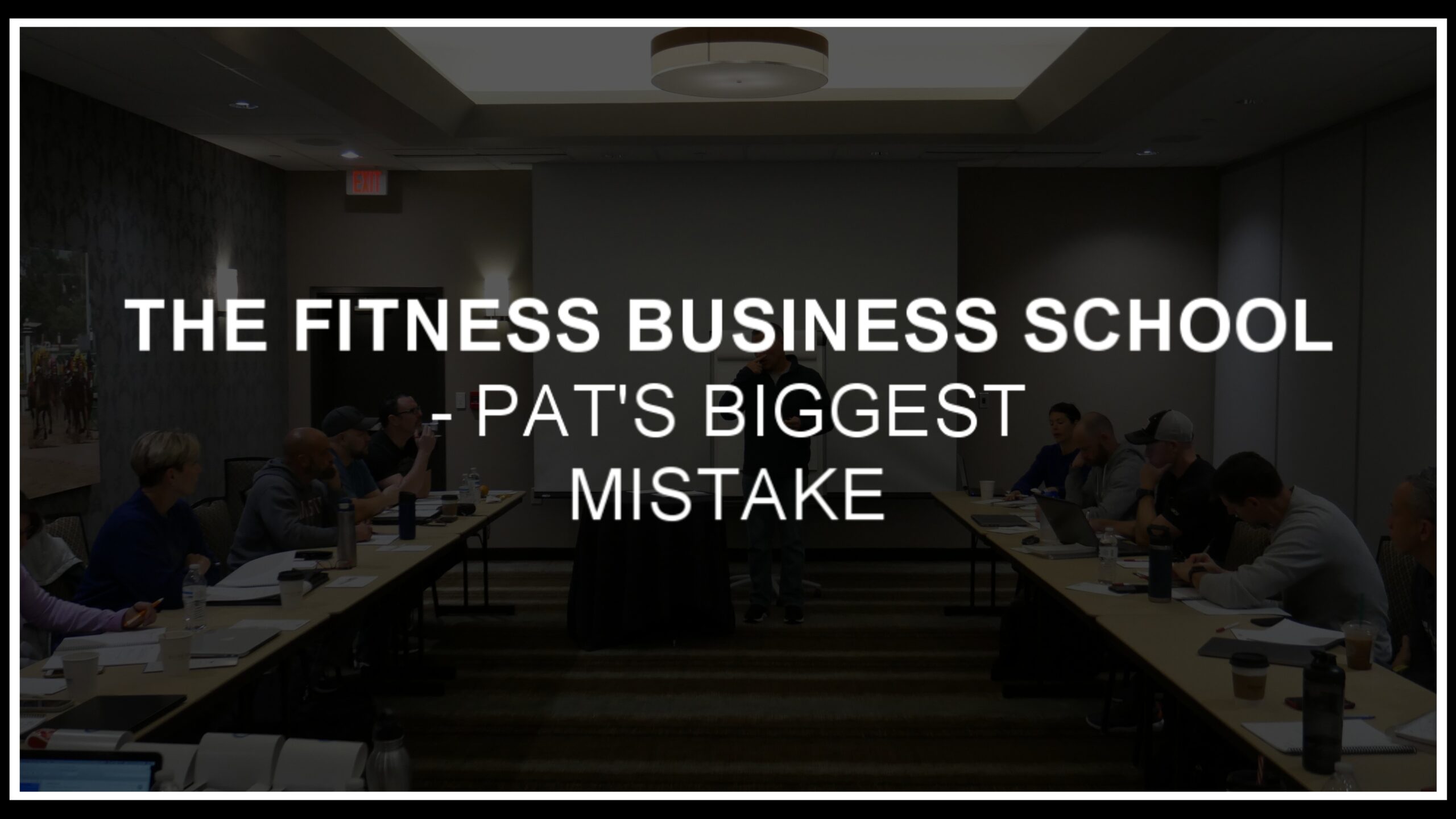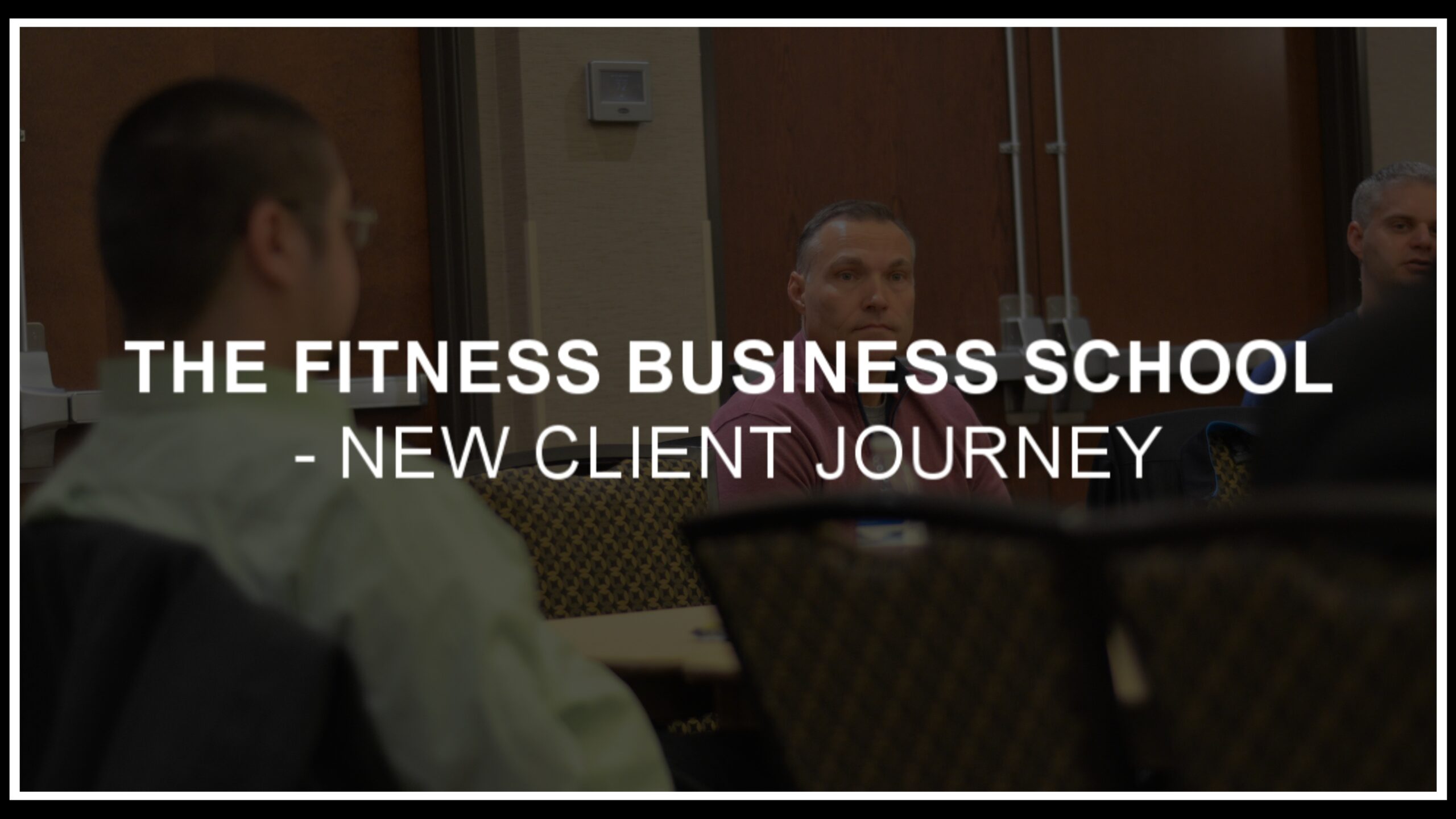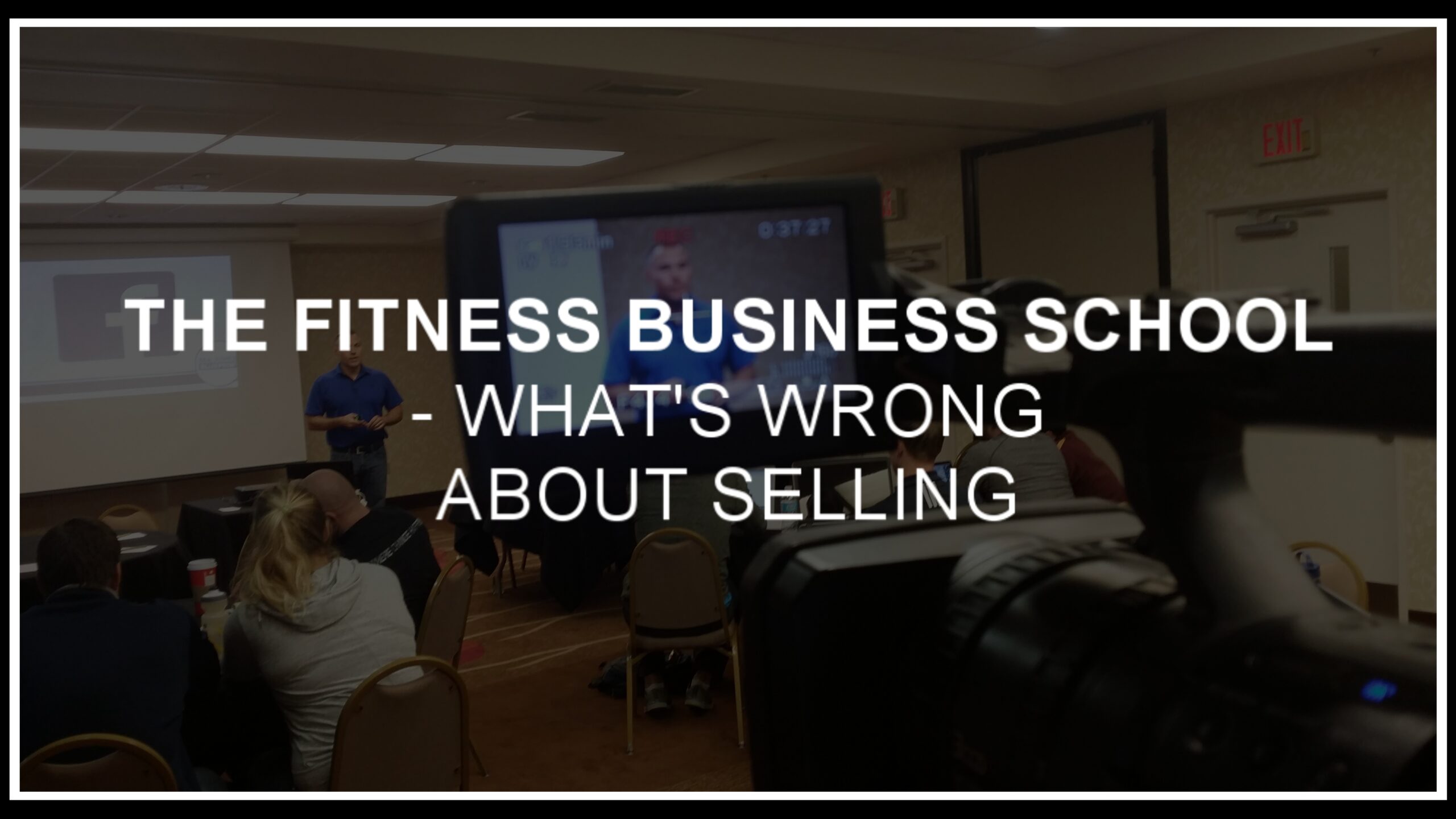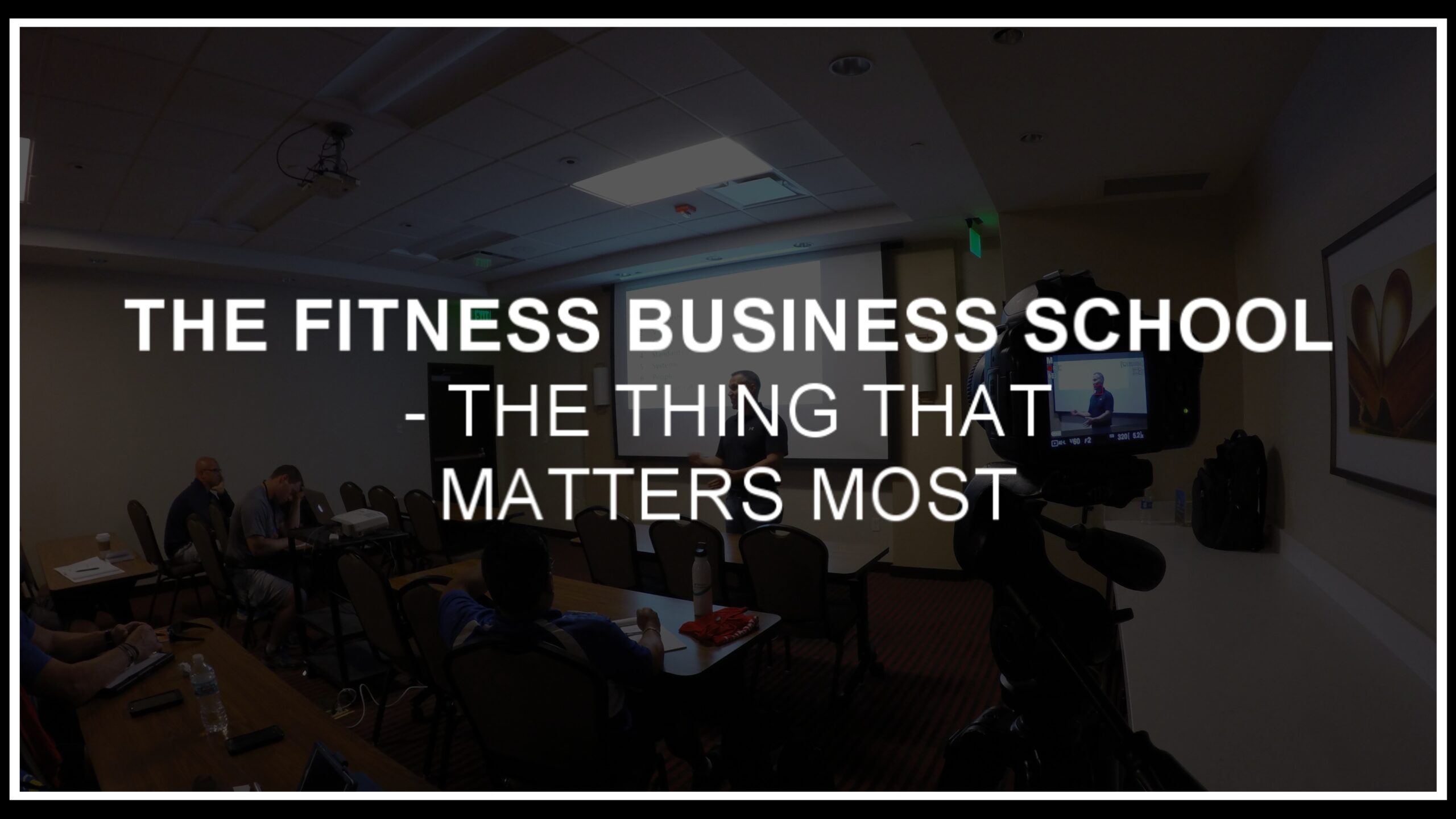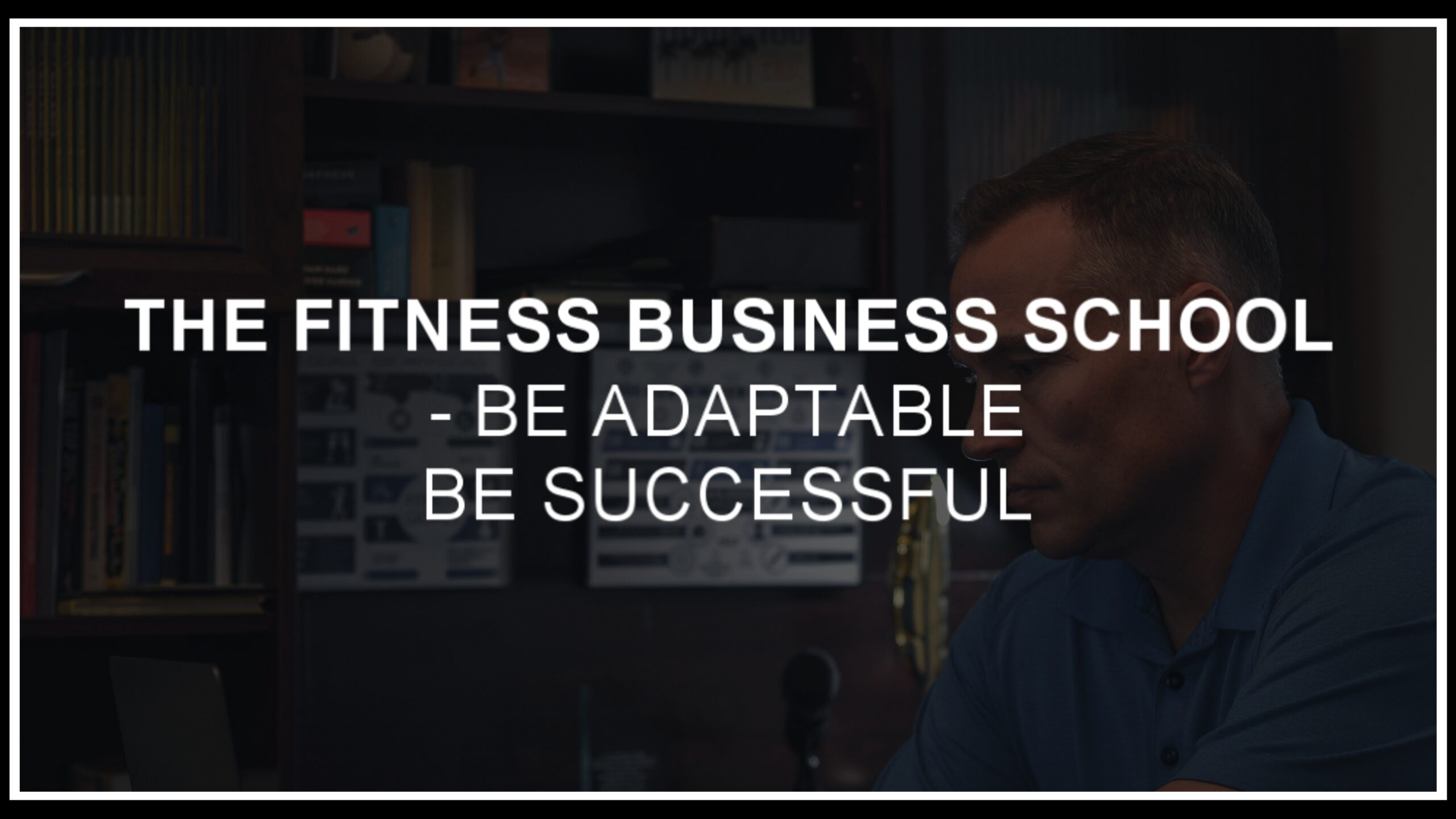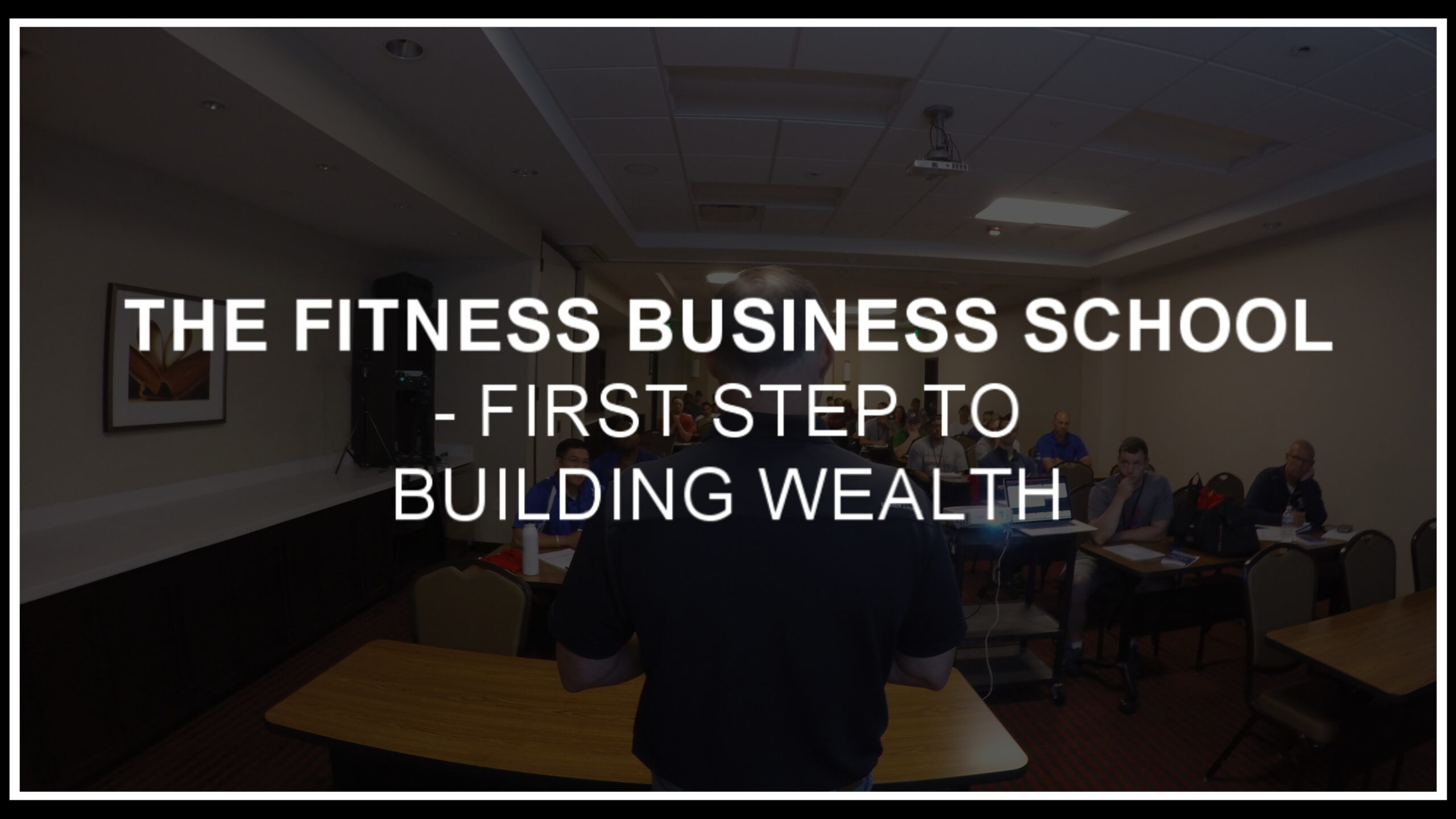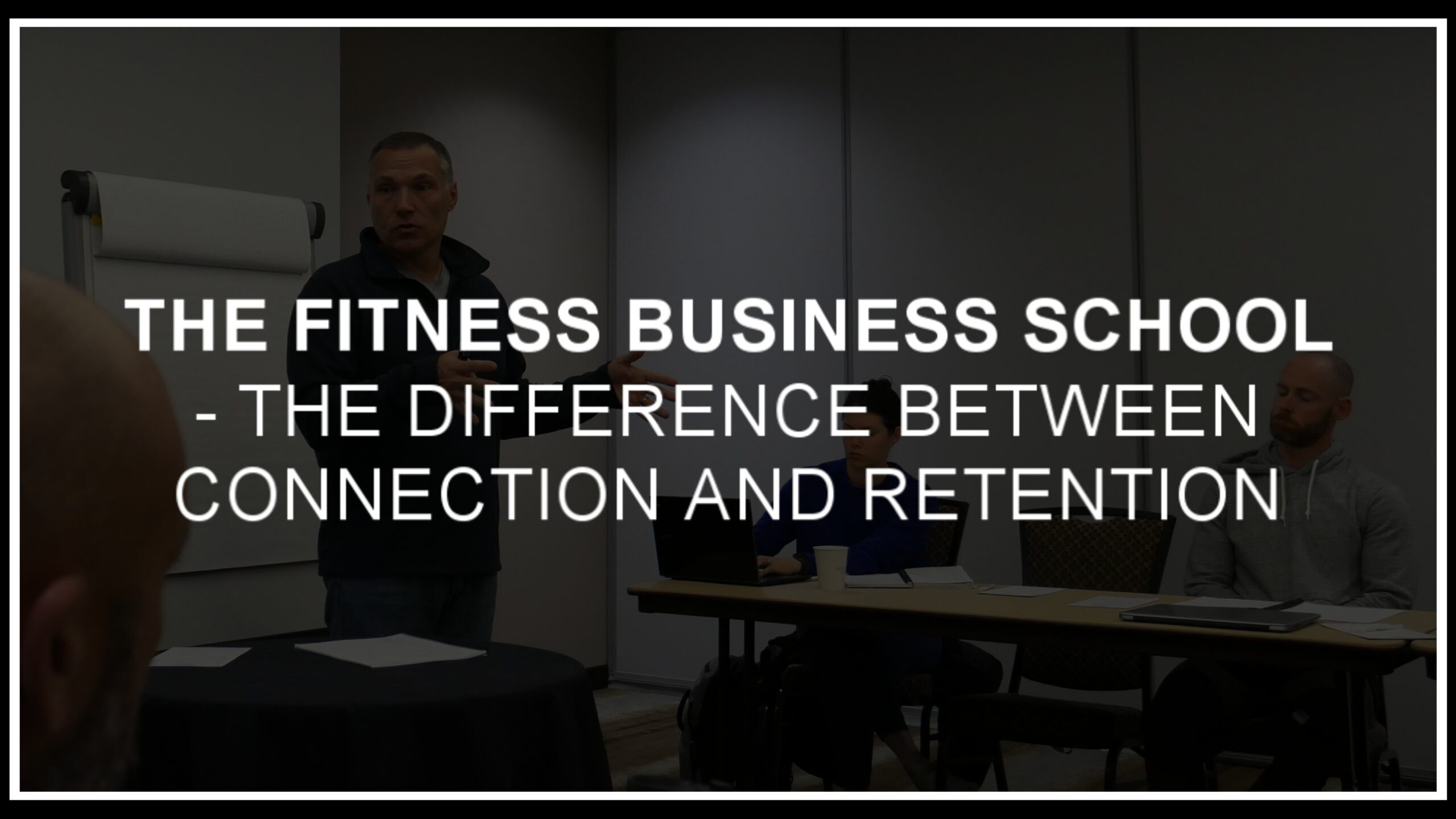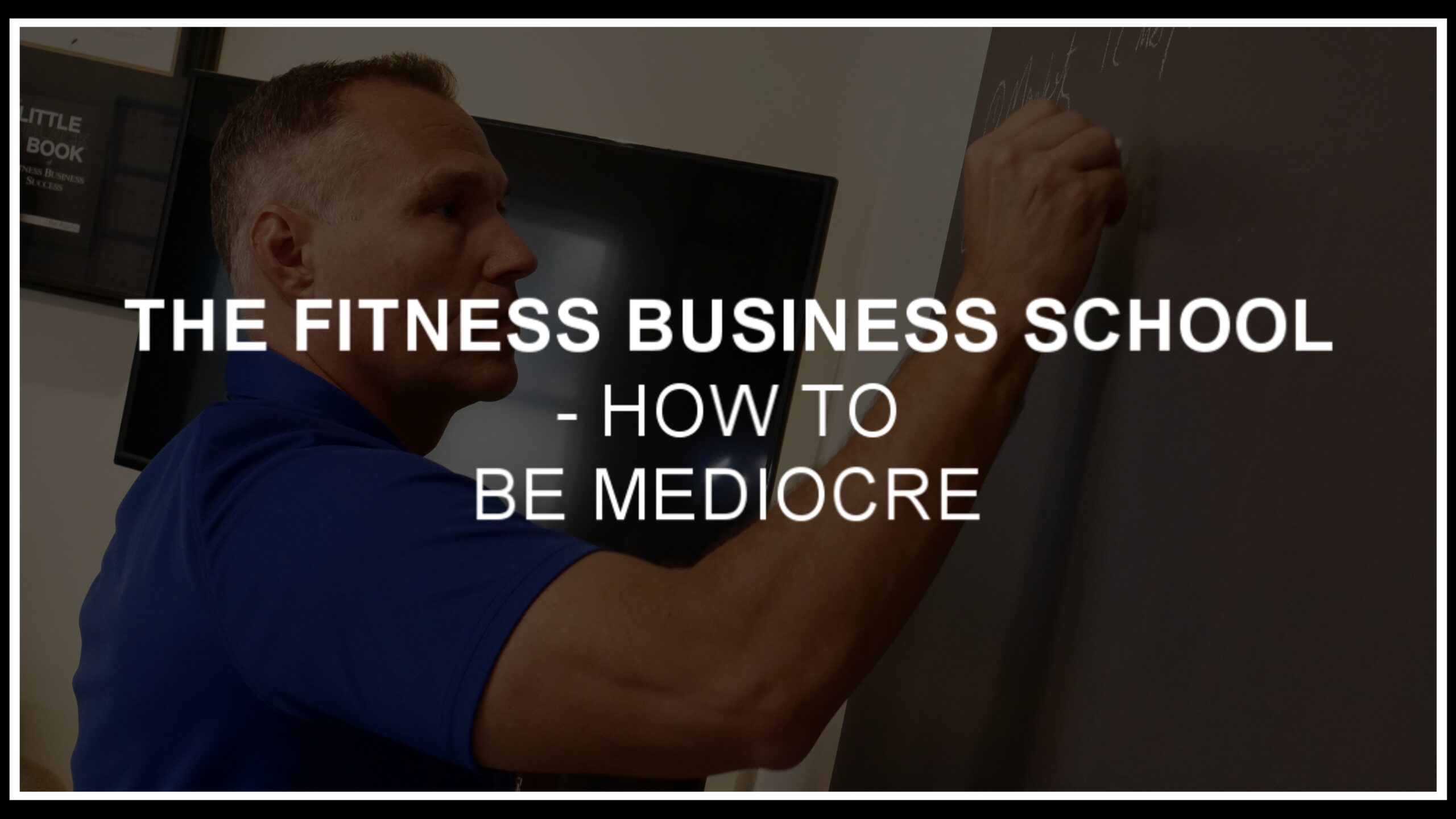Show Notes
- There are unforseen pitfalls to most things
- Businesses are easy starts, but aren’t easy to run
- Not all income is profit, not all people will be clients, etc
- Most people don’t have basic business education
- How are things going now?
- If you’re self-limiting, you’ll always struggle
- Take ownership of all of it, its on you
Full Transcript
Hey, Pat Rigsby here and in today’s episode. I want to ask, should you actually do this? Let’s get started.
Welcome to the Fitness Business School podcast, the show for fitness business owners who want to grow their income, increase their impact and improve their lifestyle. Be sure to listen to the end of this episode because we have a brand new special offer exclusive for listeners. So stay tuned.
There are certain things in our kind of society or world that are just, they kind kind of confuse me a little bit, right? So when you’re in college, there’s not a whole lot of prerequisite to getting a credit card, right? They don’t talk to you about all the pitfalls credit card bills and making impulse purchases and not having to manage your money and all that stuff. And so people dig a hole that it’s way more trouble to get out of than it was to get into.
And from a marriage standpoint, it’s always interesting to me that right now what half of society, like half of marriages end out in divorce and invariably there are all these components that go into a divorce, right? There’s a lot of times it goes to court to divvy up assets and custody and lawyers get involved. Man, it’s pretty easy to get married, right? Like there, the prerequisites to getting married are definitely a lot fewer than the steps or components or things involved
in getting a divorce. And business is a little bit like those two, two things. It is one of those things that man, you can go fill out an LLC online in no time, open up a business bank account and be in business. And frankly, plenty of people get in business without even doing that. They just basically start taking
clients and ask people to pay ’em via Venmo and don’t have an LLC and don’t have a business bank account and just do stuff in a self-employed fashion.
And they end out kinda getting neck deep in responsibilities when it comes to business. You know, we’ve taken on the obligation of fulfilling whatever people have paid for from a client standpoint, from meeting their financial goals, maybe supporting themselves, supporting their family, paying whatever overhead they have, and they haven’t really thought about what actually goes into being a business owner. And unfortunately, unless you are going to a bank or some other
source of financial backing to get a loan to open up shop, you probably, if you’re like a lot of new business owners, you haven’t thought through a lot of that stuff, you think about the optimistic side of things. You think about, oh, this would be fun to be my own boss and people on Facebook tell me how easy it is to go out there and make five figures a month as a coach, as an online trainer is doing business in a really simple fashion.
It’s just that, that easy. But the truth is there are far more people who don’t get to where they’re trying to go as a business owner than people who do. Now that like anything, there are no shortage of statistics talking about how many businesses fail in the first year, in the first five years, in the first 10
years, and how like 10% of businesses make it 10 years or beyond or something like that. I mean, all sorts of stats and, and frankly, sometimes it’s hard to discern between what’s real or what’s meaningful and what’s not, because I don’t know what they’re qualifying as as a business. Is it something that actually was set up as an LLC? Was it something that is it any home-based business? Somebody goes and decides to buy a little bit of Avon and start their side hustle or
set up shop on Etsy?
Like it’s hard to to tell how that number has arrived at, but what I can tell you from my own experience of coaching business owners for almost 20 years, and from probably having more one-on-one calls with fitness business owners than anybody else on earth, there are definitely fewer people who have
built businesses that kind of check the boxes of hey, this is producing enough money to meet my financial goals. This is allowing me to have the impact that I want, and it has allowed me to have a lifestyle that is kind of what I hoped for when I started a business. There are just many more people that
aren’t meeting all three of those, and in many cases not even one of those prerequisites. And it’s because I think they don’t really appreciate what all goes into being a business owner.
They unfortunately were not taught that before they started a business. They were not they may not have ever had that sort of coursework going through their higher education. They didn’t apprentice under somebody that pulled back the curtain and showed ’em everything that went into being a business owner. So they got a really kind of limited view of what went into this. If you charge a certain amount of money like where that money goes, it’s not all profit. Or if you work in a health club setting, not appreciating what actually goes into getting clients because you have a pool of prospects that are already inside your four walls in the health club. There are so many other variables that go into this. And in some ways it’s not the business owner’s fault. In some ways they don’t
know what they don’t know, but I think the counter argument is, well, you should probably do a little bit of homework before you get into things.
Now if you are listening to this, either way, it’s probably not super relevant, right? What what is relevant is you are where you are right now, and I think that if you want to still build the business that you set out to build, and if you feel like, hey, I’m not necessarily on the right track, or I’m not moving at the pace I
want to go, then there are a few things that you probably have to do right now. The first is take inventory of where you are, what’s going well, what’s not. And that doesn’t just mean a feel for things. That means actually starting to look at your financials actually starting to track your numbers and getting a
feel for okay, am I getting enough leads? Am I converting enough those people into clients? What is my retention? What is my average monthly revenue per client?
What the pnl telling me each month, understanding your numbers it for better or worse, and this is coming from somebody who kind of begrudgingly did this,
didn’t certainly love it in the beginning. That’s the language of business. And if you’re not moving the needle on those numbers, then everything gets tougher, right? Like, you’re probably not going to arrive at where you want to go without having an appreciation for that. The second thing that you need to do is
understand that the, this, I don’t like sales or I don’t like marketing, or, I’m a bad business person. As long as that is the case, then you’re probably always gonna struggle and you’re just gonna have to get past those self-limiting beliefs. You’re gonna have to find something that works for you. I can tell you that in my
own case, the first 2, 3, 4 marketing resources I tried to study to learn marketing, actually back when I was a college baseball coach, it was like Greek to me.
I just, it, I couldn’t wrap my head around it. It wasn’t something that, that just felt right, it felt very textbookish to me. And then I ended out finding something that kind of spoke to me that I connected with, that I could understand and I could take that information and apply and it kind of opened up a whole new path to me to get comfortable with marketing and selling and be more effective. And you need to do the same. Instead of saying, I’m bad at this stuff, it, instead of dwelling on the problem, you gotta find a solution. And then the, the third is you gotta take responsibility for producing. You’ve got to own all of it. If you are going to be the business owner, everything comes back to you. The result producing the results, the, the clients get hiring, developing coaches that are good
representatives of your business, producing new leads, producing new sales revenue, profit, producing a schedule that allows you to have the, the freedom or flexibility that you want.
Because if you don’t do it, nobody else is gonna do it for you. Nobody’s gonna come in kinda riding in to save the day, and there, there is no job you can get promoted to or whatever else this is on you. Now, admittedly, when you lean into these kind of three areas that I just alluded to, man, all this stuff gets so
much more enjoyable. I mean, frankly, it’s kind of why I love business because I, I can recall very vividly when I was a college baseball coach, we went to the World Series, our men’s soccer team won zero conference games, and the next year’s budget came out and each of us got exactly the same budget in
spite of the fact that I was carrying twice as many players too. So bringing in more money to the university that for me was one of those kinda red flags.
Like, this is not the environment that I wanna work in. I want to be able to control a little bit more of my own professional destiny. And so if you’re a business owner that leans into this stuff and wants the ability to drive your own results, then you’re gonna love this stuff. That doesn’t mean there’s not gonna be plenty
of frustration. That doesn’t mean there aren’t gonna be more than more ups and downs than you’re hoping for, but it does mean that the good is going to significantly outweigh the bad if you lean into this stuff and really em embody it in your behaviors each and every day. But if you don’t, then that doesn’t
mean that you are destined to fail, but it means that you’re probably destined to be unhappy with your business, and that may be just as bad because then it’s preventing you from finding something that you are happy with.
Sometimes as business owners, we need to kind of just wrap our arms around what the reality of it is and take advantage of it and use it as a strength, use it as a competitive advantage because a lot of people won’t do this, and this gives you a leg up. This pushes you ahead of the competition. But if you
want to have your ideal business, this is how you earn it. You don’t just get to have it. This is how it’s built. These are the the hoops you have to jump through. But I promise you, when you do it, it’s gonna be worth it. So hopefully this was a little reminder for you if you’ve drifted on this, if this is new to you, it,
it’s a great place to start. And if you’re doing great and you already have your ideal business, then hopefully this is something that, that you got to listen to and say what? I got this and this is one of the reasons, or a few of the reasons why I’ve been able to achieve what I have. So that’s it. That’s how you decide if this is for you.
Thanks for listening to this episode of The Fitness Business School.
Before you go, I have a quick announcement:
One of of the things that we’ve been doing with our current clients is taking them through this Ideal Business diagnostic and really what it is, this checklist that allows you to pinpoint exactly what your business needs next so you can keep improving, keep growing, and build a business that you love to own, one that pays you well, one that allows you to have the impact you wanna have and one that allows you to have a lifestyle that you truly enjoy.
In this diagnostic, we walk through everything and we do an evaluation and can instantly pinpoint what you need to do next to build that business that you want. I’m going to extend this opportunity to get on with either me or my team and take you through this evaluation and fix your business’s most vital needs fast.
So if we take you through this, you’re gonna be able to make those vital changes that you need to finally have what I call your Ideal Business. If you’d be interested in going through this entirely free, risk-free diagnostic with us and learn what you already have in place, what you’re doing well and where are your greatest opportunities for rapid improvement are just shoot me an email with diagnostic in the subject line to [email protected].
Again, an email to [email protected] with diagnostic in the subject line will get you scheduled and take you through this evaluation to help you build the business you want.


